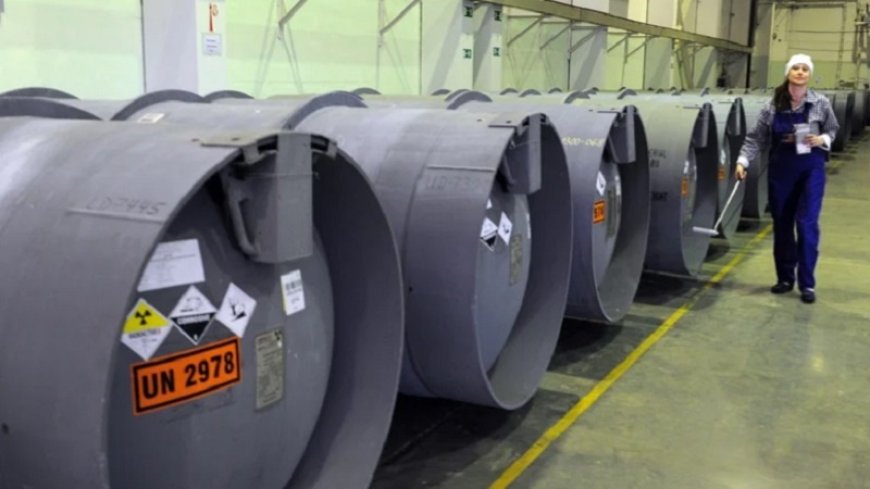USA continues to buy uranium from Russia

The US continues to buy uranium and other important materials from Russia, Russian Foreign Minister Sergey Lavrov said. Transmits to "RIA Novosti". "Forcing the EU to give up everything Russian, Washington continues to buy uranium and other important materials from Russia," Lavrov said during the ambassador's round table on the settlement of the situation around Ukraine. At the same time, he emphasized that the US "with its selfish laws forces" European companies to give up Russian energy resources in favor of expensive American liquefied natural gas (LNG).
In 2022, US uranium imports from Russia saw a significant increase, surging by 2.2 times to reach 416 tonnes in the first half of the year. This underscores the United States' continued reliance on Russian nuclear fuel, despite possessing its own uranium deposits. However, the domestic uranium reserves are not adequately developed to meet the demands of the expanding nuclear power plant (NPP) sector. Despite being the birthplace of the Manhattan Project, the US lacks the processing capacity required to refine raw uranium into the burnable U235, a global market dominated by Russia.
During the initial six months of the year, the US doubled its imports of Russian uranium, spending $695.5 million in the process. Experts suggest that breaking this dependence on Russian U235 imports will necessitate at least five years of substantial investment. Former US Deputy Secretary of Energy, Dan Poneman, highlights a critical choice facing the US and other Russian uranium importers – either continue importing or consider shutting down reactors.
While Russia's gas export business faces challenges, its nuclear exports, including technology and U235, are flourishing. Nuclear technology and U235 are becoming analogous to gas as Russia aims to solidify its influence by constructing nuclear power plants (NPPs) globally. Russia, with approximately 40 reactors built or on order worldwide and a similar number domestically, often provides substantial financing, covering up to 80% of construction costs. This attractive package appeals to energy-deficient developing markets seeking long-term stability.
Russian-built NPPs typically come with a 60-year service contract and fuel supplies, creating a lasting dependency that the Kremlin can leverage. Recent recipients of Russian NPPs include Belarus, already operational, as well as South Africa and Egypt. Supplying raw U235 to "unfriendly" nations, such as the US, also gives Moscow strategic leverage in the current geopolitical landscape. Notably, nuclear technology and fuel have remained exempt from sanctions lists.
Sputnik













































